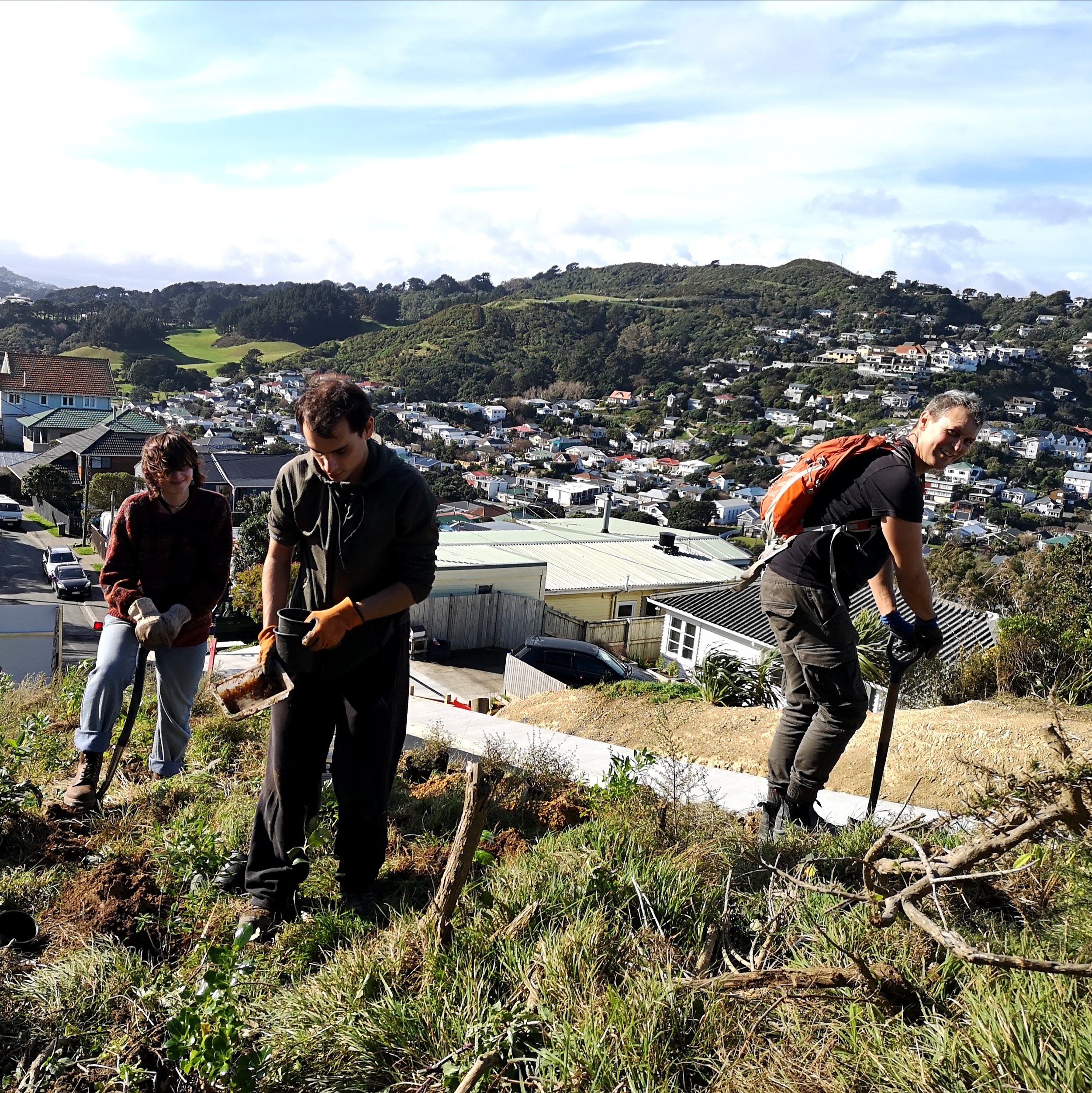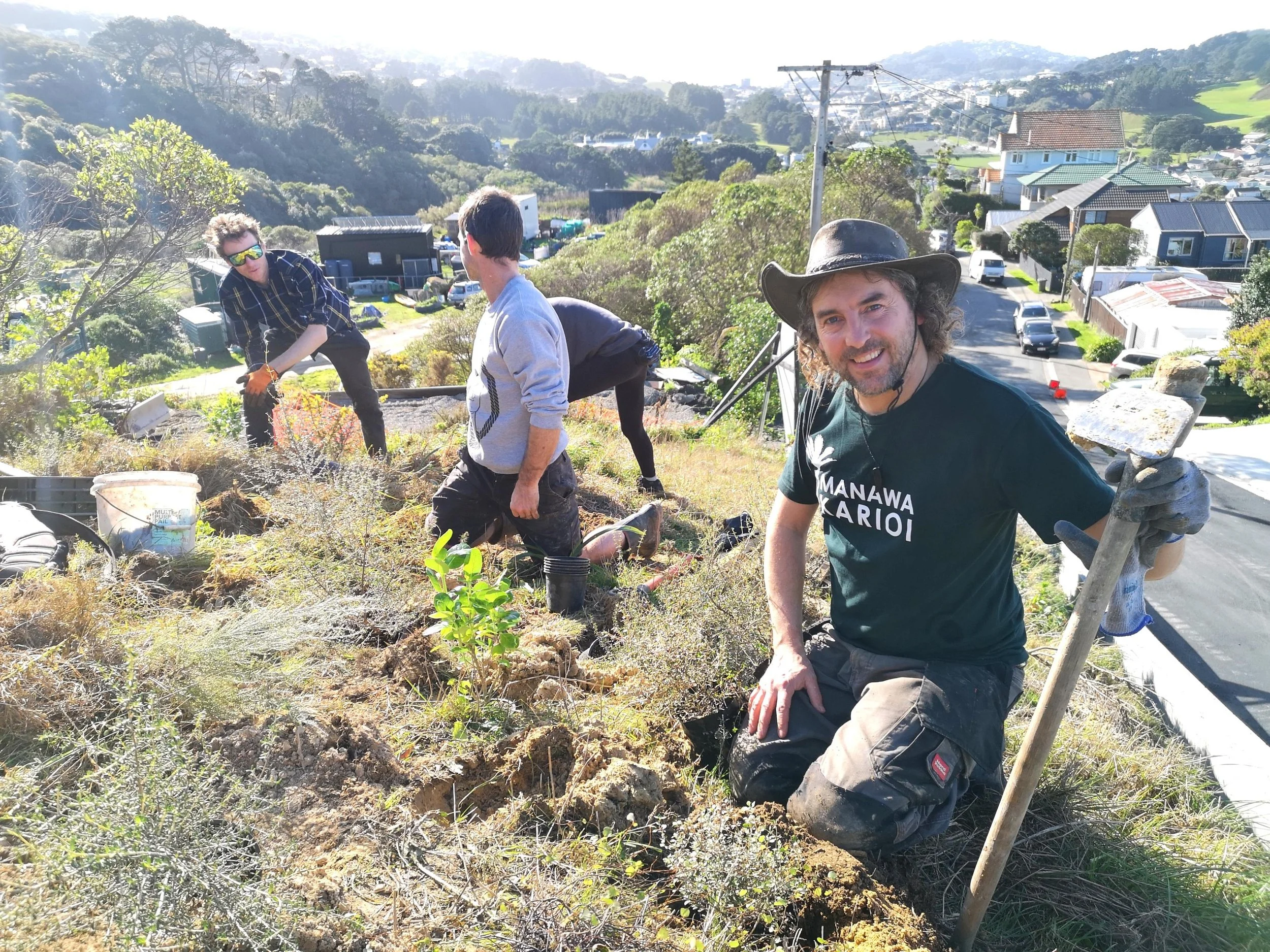2022 Planting Session - Landslips and Feeding the Birds
Another planting season has finished and what a wet one it has been! While a wet winter means lots of moisture in the soil (allowing for good plant growth during spring and summer) it can also bring some challenges. Besides some less than optimal weather for some planting sessions, the main problem has been the landslips.
This season we got 700 plants in the ground, with a couple of our planting sessions being a combined effort with Southern Environment Association on our boundary with their project in Tawatawa Reserve.
As we run out of open spaces to plant the common first-stage plants into, we have continued to increase the quantity of plants that need to be put under established patches of bush. This in turn is helping provide a year-round supply of food for insects and birds, with the latter helping spread seeds around. The amount of natural regeneration of bush at Manawa Karioi is increasing. At this stage it is mostly fast-growing understorey plants such as kawakawa and rangiora, but we are seeing a lot of porokaiwhiri (also known as Pigeonwood) as well as the locally rare Towai (Streblus banksii).
We continue to plant small quantities of forest giants such as totara, kahikatea and matai each year. They can take decades until they produce fruit, but by the time they do we will have planted hundreds of them.
As for those landslips...there have been 5 significant ones this year. Surprisingly, four of them happened right at the beginning of winter and despite there being almost twice as much rain as usual, none of them got any bigger as winter progressed. The fifth slip occurred a few weeks ago at roughly the halfway point on Te Ahi Kaa.
All of the slips have been made passable to allow access, but at present everything is just too muddy to dig out. Once the tracks have dried out a bit we will put out a call for help with clearing them. We should be able to clear the 4 smaller ones in one session but the big slip will be a work in progress.
Written by Ross Gardiner




